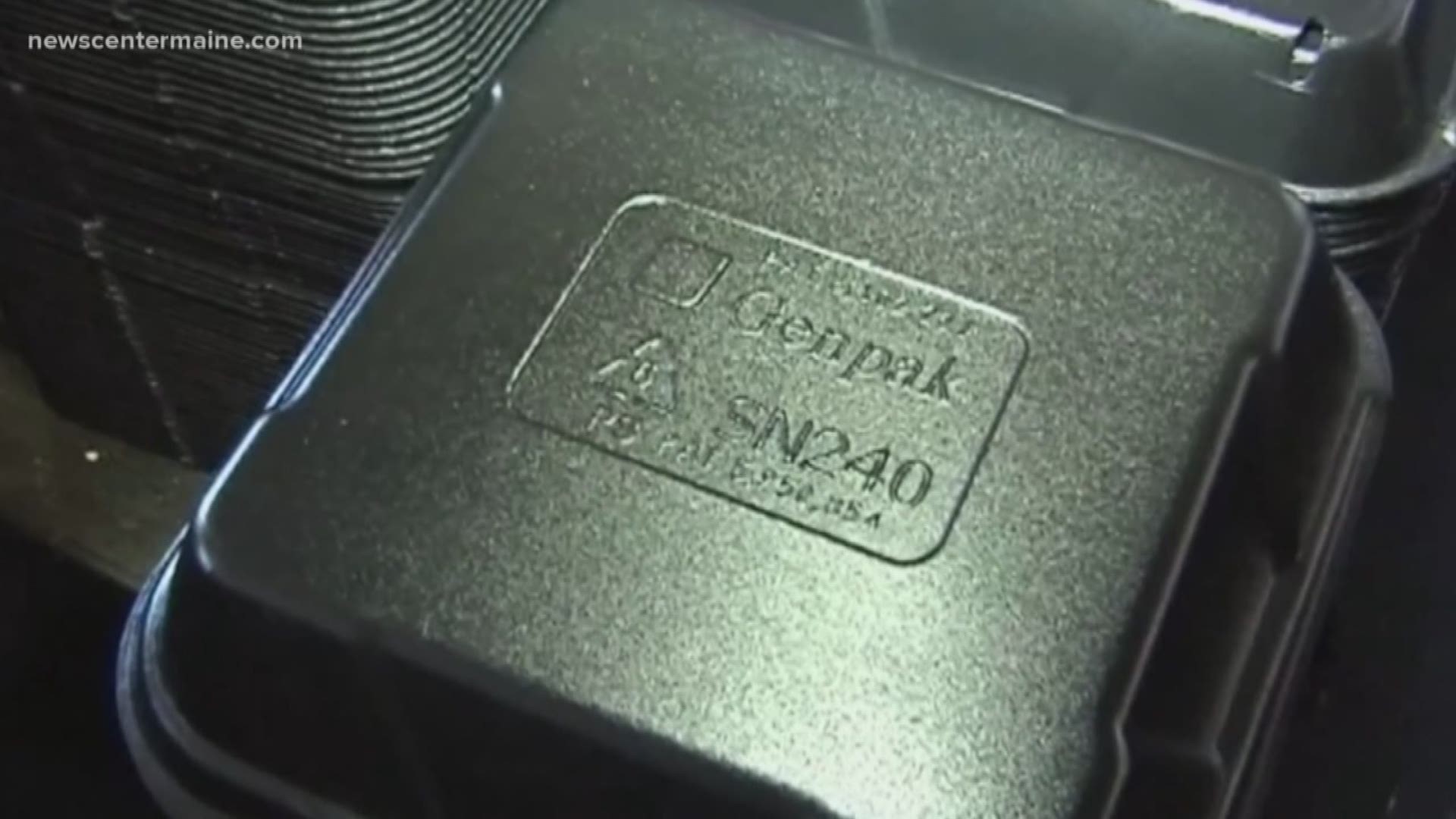Maine Gov. Janet Mills has signed a ban on polystyrene food containers at restaurants and grocery stores, making it the first state in the nation to ban some types of plastic foam. But that could be merely the first shot in a broader national campaign against a product better known as Styrofoam.
Like all plastics, polystyrene stays around in the environment for hundreds of thousands of years. But it's particularly noxious, environmentalists say, because its light weight makes it liable to be carried by wind and water into the ocean. It also crumbles easily into small pieces, making it more likely that birds and fish will eat it.
"People think it breaks down, because you see it breaking in smaller and smaller pieces, but in some ways those are more harmful because they can more easily be consumed by animals and even humans," said Jacqueline Savitz, chief policy officer of North America at Oceana, an ocean conservancy nonprofit. Polystyrene is hard to recycle, especially in its popular form as a food packaging. And recent evidence indicates it may also be carcinogenic.
"Low-grade goop"
While very clean polystyrene can technically be recycled, that process is often laborious. When New York City banned polystyrene in 2017, it cited findings from the sanitation department that the product "cannot be recycled in a manner that is economically feasible or environmentally effective."
"Imagine if you took all the different types of polystyrene packaging out there — plates, cups, meat trays," said Martin Bourque, executive director of the Ecology Center in Berkeley. "It's going to have food stains on it, it's going to be all different colors, and it's going to be all this foam you have to densify. You're not going to get food-grade polystyrene out of that, no way. You've just got this very low-grade goop that you can use for some very limited, very low-grade applications."
Despite the material's deficits, styrene remains popular in the packaging and food industries because of its unique combination of properties — it's remarkably light and offers effective insulation, keeping hot things hot and cold things cold. There are other products, including a rigid, lightweight mushroom-based substitute, but they can cost more, which makes some small restaurant owners wary.
Maine's bill faced strong opposition from the plastics industry, food service container manufacturers and tourism groups, which argued for the low cost of polystyrene. Such industry groups argued that Maine law doesn't ensure that polystyrene is replaced with a more eco-friendly material.
"It is our sincere hope that Gov. Mills and the Maine Legislature will reconsider this legislation next year after they see how it will negatively impact the environment and local businesses and consumers," Omar Terrie, a director in the American Chemistry Council's plastics division, told The Associated Press.
While only a few New York restaurants used Styrofoam before the ban, those establishments faced higher costs for replacement materials, according to Andrew Rigie, executive director of the NYC Hospitality Alliance.
Of course, some of the items they switched to — such as hard plastic clamshell containers — may be only slightly more recyclable than polystyrene. That's why many environmental activists now favor moving away from laws banning individual items like food containers, straws or plastic bags, and toward comprehensive rules addressing all types of plastic.
"The ability to recycle it is not going to keep up," said Oceana's Savitz. "It's not OK to say, 'We're just going to make it and manage it better.' We have to reduce what we're making."
Other stories people are checking out WFMY News 2:

